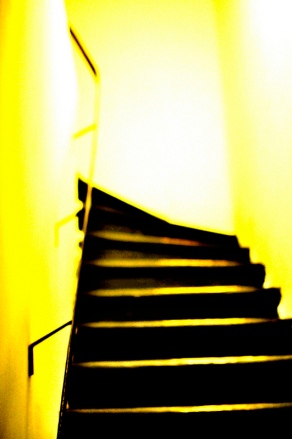 My response to Project Zero and other vectors of constructivist-influenced, inquiry-based, student-centered thinking in education was to start thinking much harder about curriculum.
My response to Project Zero and other vectors of constructivist-influenced, inquiry-based, student-centered thinking in education was to start thinking much harder about curriculum.
To become more student-centered in my practice, I felt I needed to address the what as well as the how of my teaching. In order to create inquiry space for students, I had to build structure. It wasn’t enough, I felt, to identify through-lines and bolt concepts onto what was already there. I wanted to create something simple – something both basic and profound – within which students could create their own (authentic) complexities.
The how is important too – the ideals of differentiation, empowerment, and inquiry can hardly be realized without committed and empathetic classroom practice – but it seemed to me that greater coherence in curriculum would pay off in all areas.
I’ve written previously about the paradigmatic uncertainties which cloud direction in my subject – the lack of agreement on the theoretical basis on which we work as literature teachers. These uncertainties do not, it must be said, prevent a lot of great work being done by individual teachers, and I don’t want to belittle the work of colleagues or indeed my own work in the past. So many English teachers succeed in making their classes distinctive and exciting for many students. But none of this would be lost, and its force could be multiplied if the curriculum were more coherent, if the big picture weren’t so fuzzy. I envisaged a course in which nothing would be left behind or finished with, where the texts and questions discussed at the beginning of the year would still be part of the discussion at the end. In particular, I wanted to create inquiry space. But how can you have real inquiry without an epistemological basis?
By ‘epistemological basis’ I mean a theory of knowledge. At Diploma level all students take this course in basic epistemology. Whereas the fundamental question of the Middle Years Programme is ‘How do I learn?’ at DP level this becomes ‘How do I know?’ The TOK department’s job in a school is to keep this question at the front of everyone’s mind. At Diploma level, students must understand they are not just being asked to learn but also to question the basis of what they learn. What constitutes knowledge in a particular discipline, and how is it arrived at? What kind of knowledge community exists around it, and how does it function? They need to understand that a certain proportion of what they are learning will inevitably be superseded, and that knowledge is an ongoing project without any end. I would assert that one of the most important functions of inquiry-based learning in the MYP is to make TOK and the Diploma possible, by introducing students experientially to methods and ways of knowing in the various disciplines.
This means that in science classes the first and most important job of the teacher is to introduce students to the scientific method, along with some of its nuances and ramifications. It’s easy to re-imagine science subjects in a powerful inquiry-driven form (if the curricula weren’t so overloaded), because the method and the paradigm are clear. The scientific method would be both the means and the subject of the ongoing inquiry through the MYP, and all topics could be approached through that inquiry. Thinking routines could be applied and grow consistently throughout the Programme, opportunities for authentic inquiry would form the spine of the course, and while some students would become increasingly sophisticated in creating falsifiable hypotheses and critiquing experiments, the baseline would be a conceptual understanding of the method itself, a goal achievable by all students.
My science curriculum, in short, would start with the big picture and everything would be framed within that. That’s one of the most central principles of constructivism – you should proceed from the whole to the part, not the other way round. So as a science teacher you have to remember that what you’re studying is not bulb germination or wave refraction per se. What you’re studying is science. What is science? How does it work? Does it always work? What is its unique power? Where are its limitations?
Likewise in a literature class, we’re not studying this poem or that novel or play. We’re studying the discipline of poetry, the inexhaustible possibilities of the novel, the polyphony of drama. But how do we organize this study to make it progressive – how do we scaffold it? What’s our method? What is knowledge in our subject? Could we ever achieve an accumulative power in curriculum and a basis for real inquiry?
Time for a rethink.